Born in 1950 in Melbourne, Laurance Splitter studied at Monash University before going to Oxford to read for a BPhil and later a DPhil in philosophy. He followed an academic career, teaching philosophy at Monash university and then moving to US universities to work in the area of philosophy for children, taking philosophical discussion into schools. After retiring from his role as Professor of Education and Philosophy at the Education University of Hong Kong, Splitter has continued to work on educational projects with a particular focus on encouraging young people to think independently and engage in dialogue. He is the author of numerous publications, including Identity and Personhood: Confusion and Clarifications across Disciplines (2015), and Identity, Reasonableness, and Being ‘One Among Others’: Dialogue, Community, Education (2023) In 2024, Splitter joined the first cohort of Oxford Next Horizons, a six-month experience for those in mid to late career, offering the chance to think, explore and reinvent. This narrative is excerpted from an interview with the Rhodes Trust on 23 May 2024.
Laurance Splitter
Victoria & Magdalen 1973
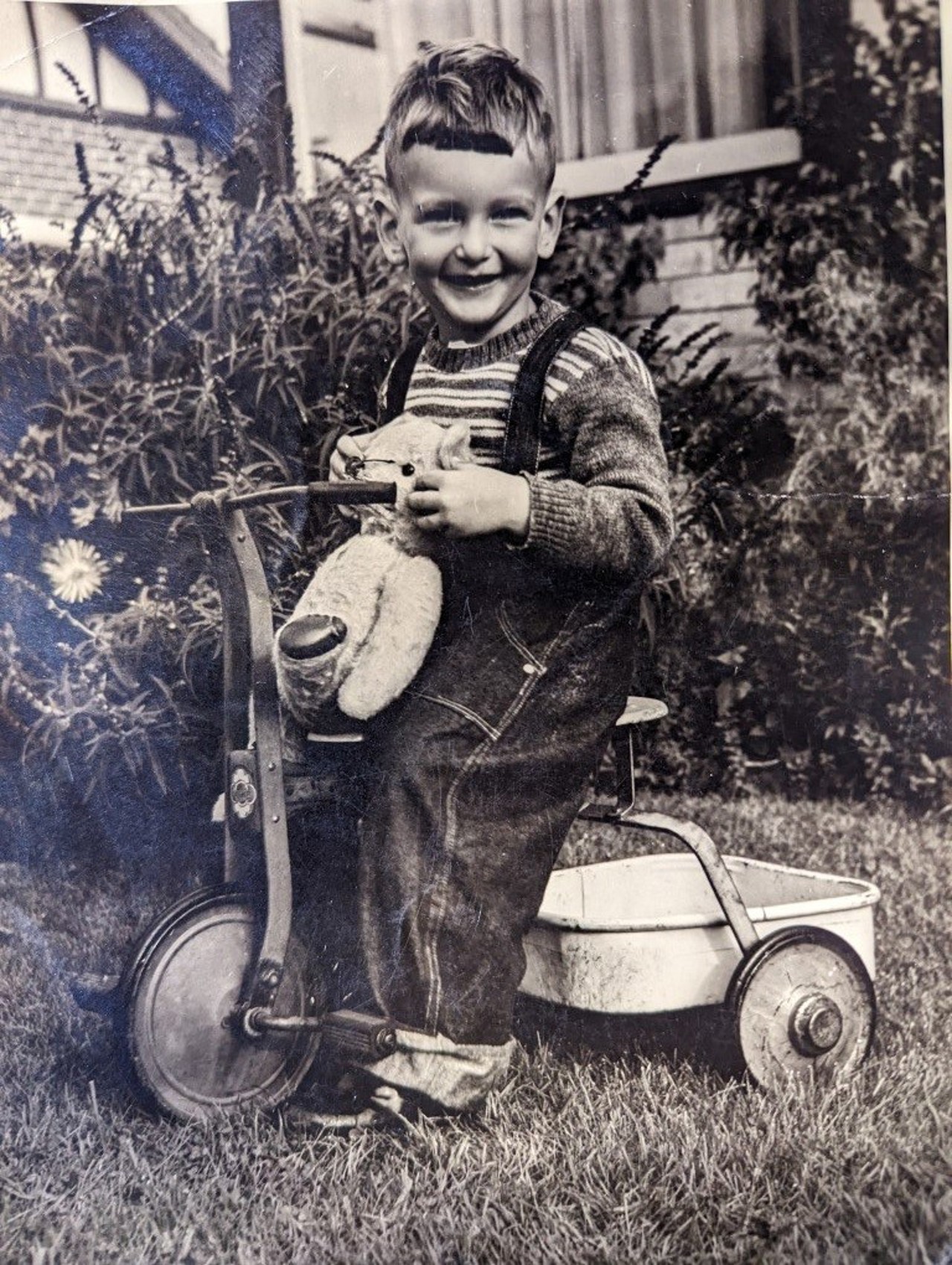
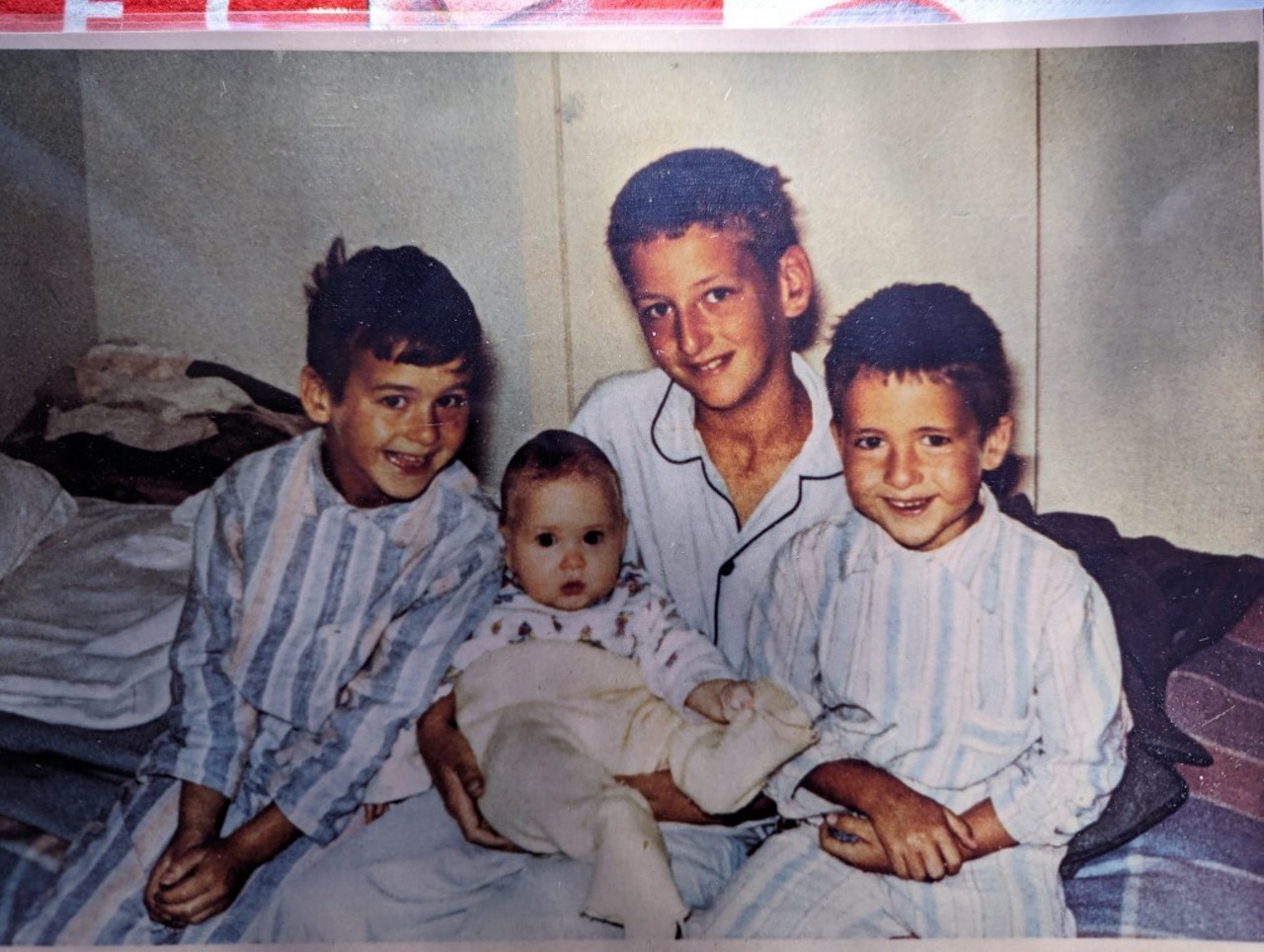
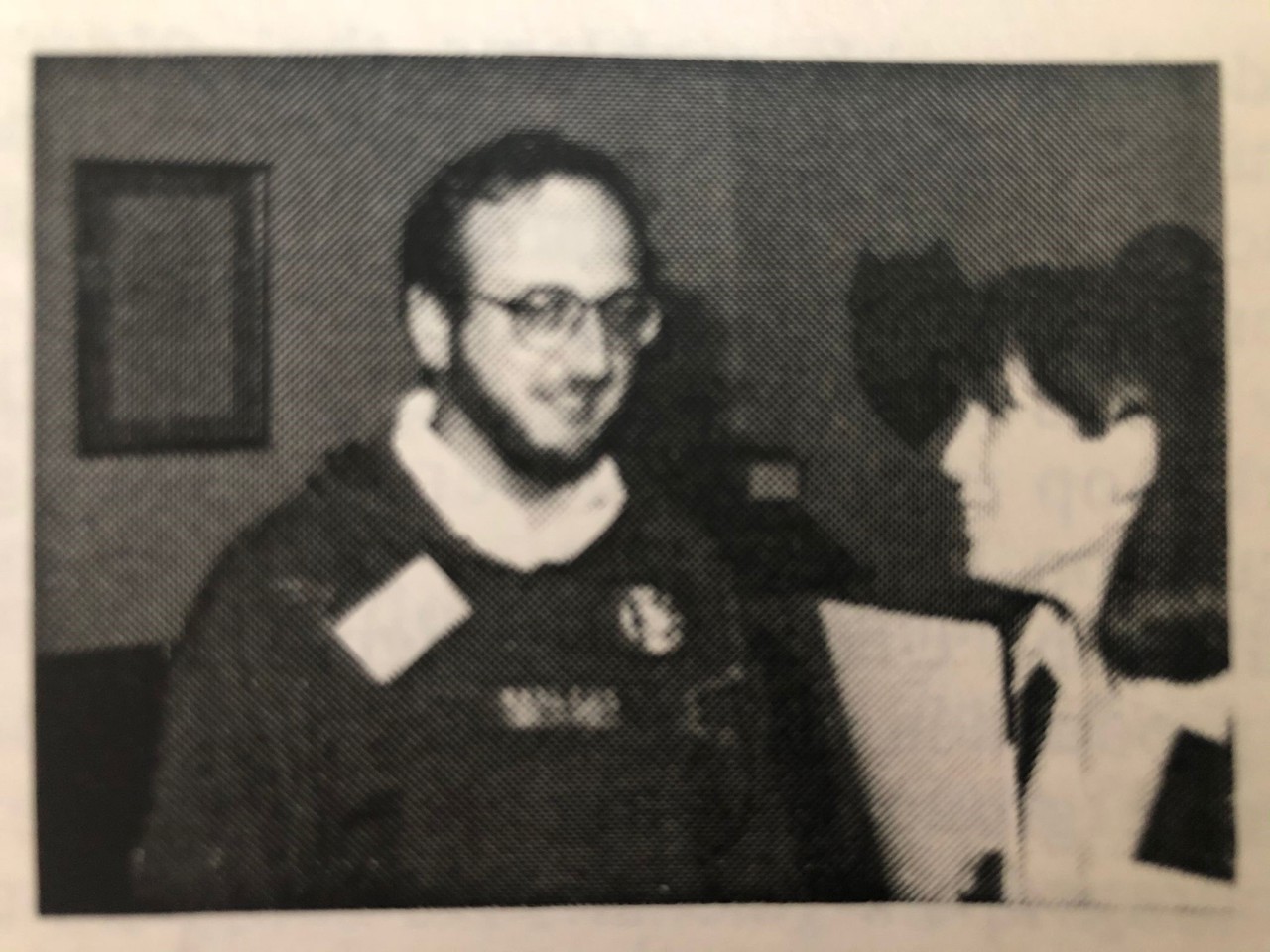
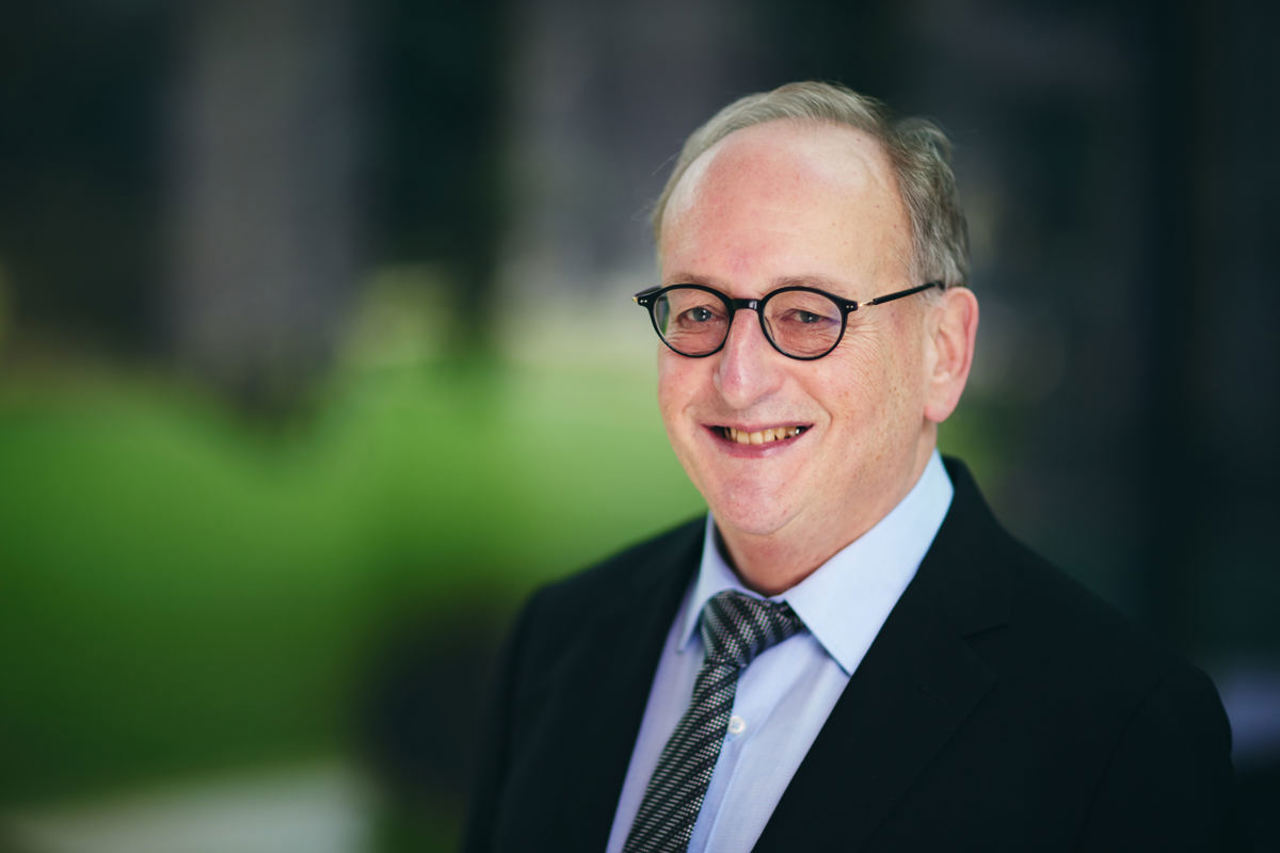
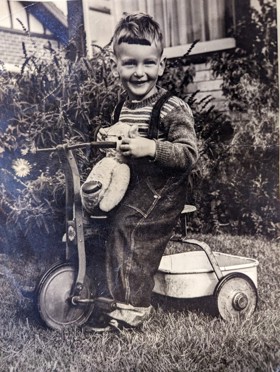
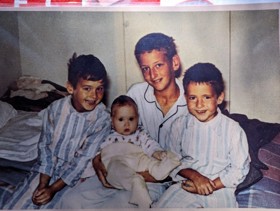
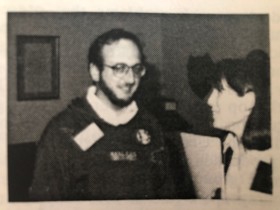
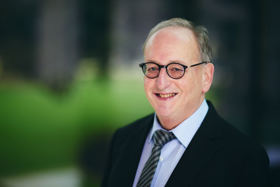
“Can you ask him to stop asking so many questions?”
I grew up in Melbourne and I was the eldest of four brothers. We lived in the suburbs and in some ways, it was a classically stereotypical family of that time, with my father as the breadwinner. He had a small business, a camera store in the middle of the city. My parents were Jewish, and I was regularly involved in Jewish affairs at the synagogue. I enjoyed reading and read a lot at a young age and I also enjoyed singing and music.
I went to the ordinary state schools in our neighbourhood and I was a bit of a teacher’s pet. I got a bit of a flak from the other kids for various things, and I think I also picked up from my mum, who was very thin-skinned, an inability to push things like cruel comments aside. I did well as a student, to the extent that, at a parent- teacher evening, one of the teachers said to my mum, ‘Can you ask him to stop asking so many questions?’ I was an okay tennis player, and during high school, I was involved in some school musicals, including Gilbert and Sullivan, which was enjoyable. I was also in a group that used to do comedy routines as part of our English classes, well before Monty Python, but very much in that style.
Maybe all kids go through a stage of regarding themselves as a bit different, and I certainly began to feel that I was not like all the other kids. I escaped into my studies to a certain extent, but I couldn’t work out quite what was going on. It took many, many more years for me to work out that it was to do mainly with my sexuality when I came out as gay. So, that started to have an impact.
On applying for the Rhodes Scholarship
At Monash University, I did a new degree in philosophy and pure mathematics, and a friend of mine and I were very much “star” students. It was a time of political unrest, but I didn’t really take part in that. I was involved with synagogue and discussion groups and I was a youth group and scouting leader. I was also carrying on with singing. So, I had a finger in a lot of pies.
It was cousin of mine who suggested I should apply for a Rhodes Scholarship, and I had already been in contact with some of the Oxford professors I would later go on to work with. Being selected was a real highlight. I was only the second Jewish Rhodes Scholar in my state. The first, Zelman Cowen (Victoria & New College 1941) actually went on to become Governor General of Australia. I haven’t quite hit those heights, but it was still quite something.
‘A bit of a mixed experience’
I chose Magdalen because one or two of my mentors had suggested it, although I knew very little about Oxford, and I even remember my first letter to the college was written to ‘Maudlin.’ It was an excellent college, and most of my social life was based there. I studied for the BPhil in philosophy, but at that time, I didn’t have a clear sense of what I wanted to go on to do. Coming to Oxford was in some respects a bit of a reality check, because up until then, with my academic work and my other activities, I’d pretty much gotten anything I wanted. There were a lot of smart people around and I remember especially that I wanted to be in a particular choir but I didn’t pass the audition.
The other thing that was happening to me while I was at Oxford was that I was becoming much more aware of my sexuality, and that was a bit of a mixed experience because, like many others who realise or are working out their sexuality, I didn’t have words to describe things that were going on. I didn’t feel discriminated against or persecuted as such. I just didn’t have any romantic life. I think in the early 1970s, that was quite common. That was starting to bother me, and it was making me question a number of things, including my future. So, I had a good time at Oxford, but it was a bit mixed.
“This is wonderful. I want to get into this.”
It felt fairly natural for me to head into an academic career. I was studying philosophy, and towards the end of my time at Oxford, I did a little bit of tutoring. Nothing else attracted me, and I certainly wasn’t interested in business, which is what all my brothers were doing. So, when I was offered a tutorship back at Monash, I accepted that, and then later, I accepted a lectureship at Wollongong University outside Sydney. I didn’t really flourish there, as I was still working out a number of personal issues. Along the way, I discovered the idea of philosophy for children in the mid-1980s, which had begun in the USA in the 1970s. I thought, ‘This is wonderful. I want to get into this,’ so I took that concept back to Australia and effectively pioneered the introduction of philosophy in Australian schools.
I moved to the US after a particularly difficult period following the end of a relationship and a subsequent very bad clinical depression. Really, it was absolute hell, as anyone who understands about depression will be able to appreciate. I got out of that, bit by bit, although I’m still prone to mood swings. I worked at universities in New Jersey and then in New York for a number of years, and by this time, I was a full professor in faculties of education. When an opportunity came up to work in Hong Kong at a teaching university, I moved there, and I took on a number of leadership roles alongside my research and teaching. I had to retire in 2015, because the retirement age there is fixed, and I regret that, because I felt, in some ways, that my best years were still ahead of me.
‘Don’t look too far ahead’
I’ve kept my love of music, especially baroque music, which I think is connected to my love of pure mathematics all the way back to school and university. Over the years, I’ve lost some of my spirituality and I had not had much to do with Jewish life recently, although I’m still interested in discussion groups. Now, I’m motivated by the prospect of doing something that will engage young people in becoming better, more considerate, more humane thinkers and human beings. I certainly have views about what should be going on in schools.
Developing my ideas around these kinds of projects is one of the reasons I’ve come back to Oxford to join Next Horizons, and it’s been comforting and reassuring to know there are others a bit like me, looking for the next thing to sustain us, motivate us, invigorate us. One thing I’ve got in mind is to set up a podcast with high school students back in Australia, so that we can get together and discuss what you might call the big questions. It’s an enormous challenge in the world we live in for people to find ways to talk respectfully to each other across their differences.
To today’s Rhodes Scholars, I would say that I hope they are able to get as much as they possibly can out of being here at Oxford. But it is a somewhat unusual, rarefied environment, and it’s important to look outside and to think in terms of helping to make the world a better place. I’m sure that’s not news to them! On the other hand, I would also say, don’t look too far ahead. I think a lot of younger people get anxious and even depressed about the state of the world, and the world is currently in an unfortunate position. But life will go on. So, my advice would be to make friendships at Oxford and beyond, and keep friendships, and focus on those things you find satisfying and rewarding.
